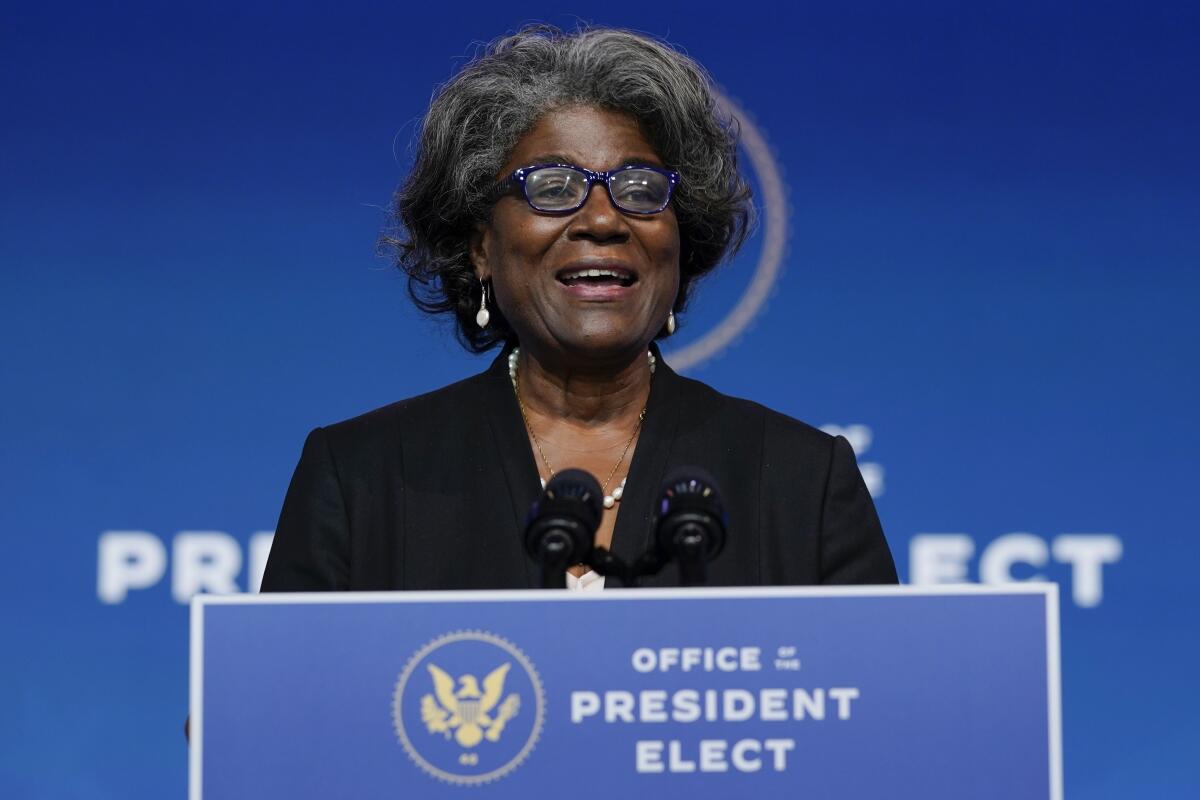Biden should turn to professionals to represent the U.S. abroad

- Share via
Gov. Newsom recently suggested that he would appoint a Black woman to succeed Dianne Feinstein if the longtime Democratic senator were to retire before the end of her term in January 2025. It was a self-serving gesture that Feinstein quickly deprived of any political value by declaring that she is fully committed to finishing her term.
Meanwhile, The New York Times has reported that Feinstein’s husband, Richard Blum, is interested in being appointed by President Biden to be the ambassador to some unspecified European country. The newspaper suggested that such a posting for her husband might induce the 87-year-old Feinstein to step down.
Unless Feinstein has a change of heart, that seems unlikely. But the possibility of an ambassadorship for Blum, an investor and University of California regent, illuminates a dilemma facing the president as he replaces envoys named by President Trump: Should he bestow ambassadorships on people who aren’t career diplomats, including donors and people with connections to political allies?
If he did so, Biden would be following the practice of previous presidents, Trump and President Obama among them. Historically, political appointees have constituted about 30% of ambassadorial appointments; Trump’s, 44%.
Some Biden supporters expect him to follow the same playbook as previous presidents. Politico reported this week that “donors are growing impatient and calling White House officials and allies to ask what they can do to secure a spot.”
But treating ambassadorships as political patronage is a tradition that deserves to be broken. In a 2019 analysis of decades of ambassadorial appointments, Ryan Scoville, an associate professor at Marquette University Law School, came to two alarming conclusions.
One was that “the average political nominee has been materially less qualified than the average career nominee,” based on factors including language ability and knowledge of the country and region they served in. The other was that “political nominees have contributed to the nominating president far more than career nominees in terms of both frequency and value.”
Not every ambassador must be a career diplomat. Some political appointees have served ably as ambassadors, and countries may welcome non-career-diplomats who have the president’s ear and stature of their own. For example, past U.S. ambassadors to Japan have included former Vice President Walter Mondale, former Senate Majority Leaders Mike Mansfield and Howard Baker and former House Speaker Tom Foley. (Obama named the vastly less experienced Caroline Kennedy as his envoy to Tokyo.)
But some politically appointed ambassadors are clearly in over their heads. Moreover, appointing campaign donors contributes to the perception that ambassadorships are for sale. And appointing even worldly and well-informed amateurs to important ambassadorships is a slight to dedicated career diplomats.
In introducing Linda Thomas-Greenfield as his nominee for U.S. representative to the United Nations, Biden praised her as a “seasoned and distinguished diplomat.” That should be the standard for the overwhelming majority of his ambassadorial appointments.
More to Read
A cure for the common opinion
Get thought-provoking perspectives with our weekly newsletter.
You may occasionally receive promotional content from the Los Angeles Times.









